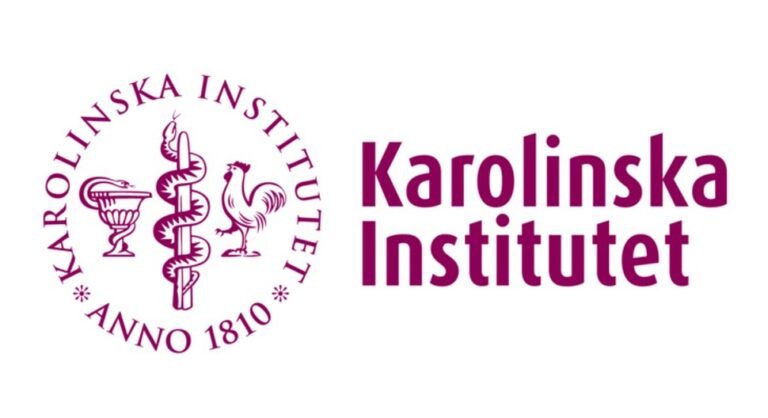Overview
The fire and rescue services across the UK have received little attention in the research literature to explore the impact of the roles within the sector on the individuals and organisations. Although better known for responding to fire incidents, their rescue activities include water rescue, road traffic collisions, trapped in small spaces, animal rescue, and other activities. They also have a substantial role in ensuring that risks are identified, mitigated and prevented before they occur. As a first responder emergency service they often see the most challenging aspects of vulnerability and social complexity. This PhD opportunity provides the opportunity to provide an evidence bases for some of the challenges in the sector.
This PhD focusses on improving holistic health and wellbeing outcomes of firefighters through longitudinal tracking over their career and through their life experience. After a substantive review in 2023 of fire and rescue service wellbeing (Hill et al.), there is a clear need to establish the first longitudinal research project to understand wellbeing over time and over the course of different careers. This project will address two main research aims:
Research Aim 1 (RA1): How does the health and wellbeing of individuals and cultural climates of organisations change over time and context across the sector and how can this inform interventions and policy?
(i) how does the health and wellbeing of individuals change over time and context across the fire and rescue sector?
(ii) how does the cultural climate of organisations vary across the UK fire and rescue sector, and what psychological impact does organisational culture have on health and wellbeing outcomes?
(iv) how can health, wellbeing and socio-organisational outcomes inform policy and interventions?
Research Aim 2 (RA2): How do the social and psychological health of flexi duty and longer lengths of service change over time?
Summary of programmes of work:
RA1: Two annual surveys will be completed to develop longitudinal datasets: an adapted health and wellbeing survey disseminated in 2022 by Hill et al. (2023) and a cultural climate survey.
RQB: The risks of flexi duty and length of service will be addressed through mixed methods. Qualitative interviews (~20 from across 4 different services) will inform a national survey of these challenges with a cross-lagged panel survey design over three years, across cohorts.
Further detail:
RA2: An updated version of the health and wellbeing survey disseminated in 2022 by Hill et al. (2023) will be run every year to gain a longitudinal understanding of the wellbeing of the fire and rescue service across the UK, with the inclusion of moral injury. As well as the health and wellbeing survey, a cultural climate survey will also be included. Recent reports within fire services and from His Majesty’s Inspectorate of Constabularies and Fire and Rescue Services have established there are challenges in the culture of some fire and rescue services.
Theoretical insights will be applied to understand and inform the cultural climate of the fire sector and how it meets the public, community, and sector expectations. By applying theoretical understandings, such as aspects of Social Identity Theory, Social Learning Theory, behavioural integrity, ethical behaviour, psychological safety, and psychological empowerment, this PhD will seek to identify how the negative aspects of culture can be identified and challenged appropriately whilst safeguarding the positive aspects of culture. To understand the cultural climate of the fire and rescue services, online experimental design using vignette scenarios will generate data relating to cultural climate. A national survey will also measure associated factors such as aspects of Social Identity Theory, Social Learning Theory, behavioural integrity, ethical behaviour, psychological safety, and psychological empowerment. These will be measured across the UK fire and rescue services. This will produce a deeper understanding of both organisational and sector culture within the fire and rescue service and the sector. This will provide a theoretical contribution of how these concepts align within the culture of critical occupations in the UK (such as police, fire and the military). It will also inform how to retain strength from these cultures, whilst supportively managing any negative aspects of this culture.
RA2: In the work completed by Hill et al, there was a demonstrable need to further understand the life experiences of the social and psychological health of flexi duty officers, which needs urgent exploration and has been absent in the academic evidence base. There is an evidence informed understanding of firefighter and non-operational staff wellbeing, but nothing substantive (if at all) addresses the stressors and transitions of a watch experience through to a single officer flexi duty role up to brigade management roles (in other words, operating in a team for years, and then operating as a single officer).
A mixed methods design would include qualitative interviews and a national survey to understand the nature of the transition to flexi duty officer. A transition awareness pack would be developed with appropriate support detailed and tailored and a service support package would be produced. A cross-lagged panel survey design would then assess the implementation of this transition support over three years’ worth of flexi duty promotion candidates. One cohort in year one without the intervention, one in year two with the intervention and one in year three following up both cohorts after one year within the flexi duty role. There is an identified need to investigate the causes of poor wellbeing linked to length of service of staff (this is disaggregated from age). To understand the length of service challenge, a cross lagged panel design will track three cohorts to compare wellbeing, job satisfaction, social support, relational quality, and psychological health on an annual basis. The first cohort (n=100) will be surveyed over the course of three years to gather data on those with between 5 – 10 years of service. The second cohort (n=100) will have the same survey but will be recruited from those with between 20- and 25-years’ service. The last cohort (n = 100) will be from those with between 30 and over years’ service.
This is needed to identify, develop, and confirm the efficacy and implementation of evidence-based interventions for these cohorts.
References
- HILL, R. and PICKFORD, R., 2024. Health and wellbeing framework. National Fire Chiefs Council.
- HILL, R., PICKFORD, R., ABDELMALAK, E., AFOLAYAN, S., BRITTAIN, M., NADEEM, L., STOCK, C. and STOLZ, R., 2023. Mapping the health and wellbeing across the firefighting career and assessing the current demands. Nottingham: Nottingham Trent University.
- HILL, R., PICKFORD, R., ABDELMALAK, E., AFOLAYAN, S., NADEEM, L. and STOCK, C., 2023. Recommended key priorities for the next Fire and Rescue health and wellbeing strategy. Nottingham: Nottingham Trent University.
Entry qualifications
Entrants must have a 2.1 (or UK equivalent) undergraduate degree and a MSc at merit/commendation or above (or UK equivalent). Ideally one of the BSc/MSc will be in psychology or related discipline. EU and International students must hold an IELTS English qualification at 6.5 or above in oral and written English.
How to apply
How to apply:
Applications are submitted via our online portal. Follow our step-by-step guide to find out how to apply.
Fees and funding
Fully funded PhD studentship for UK and International applicants.
This PhD is part funded by the National Fire Chiefs Council (NFCC). This is the UK’s national membership body for the UK Fire and Rescue Services.
Guidance and support
Find out about guidance and support for PhD students.





